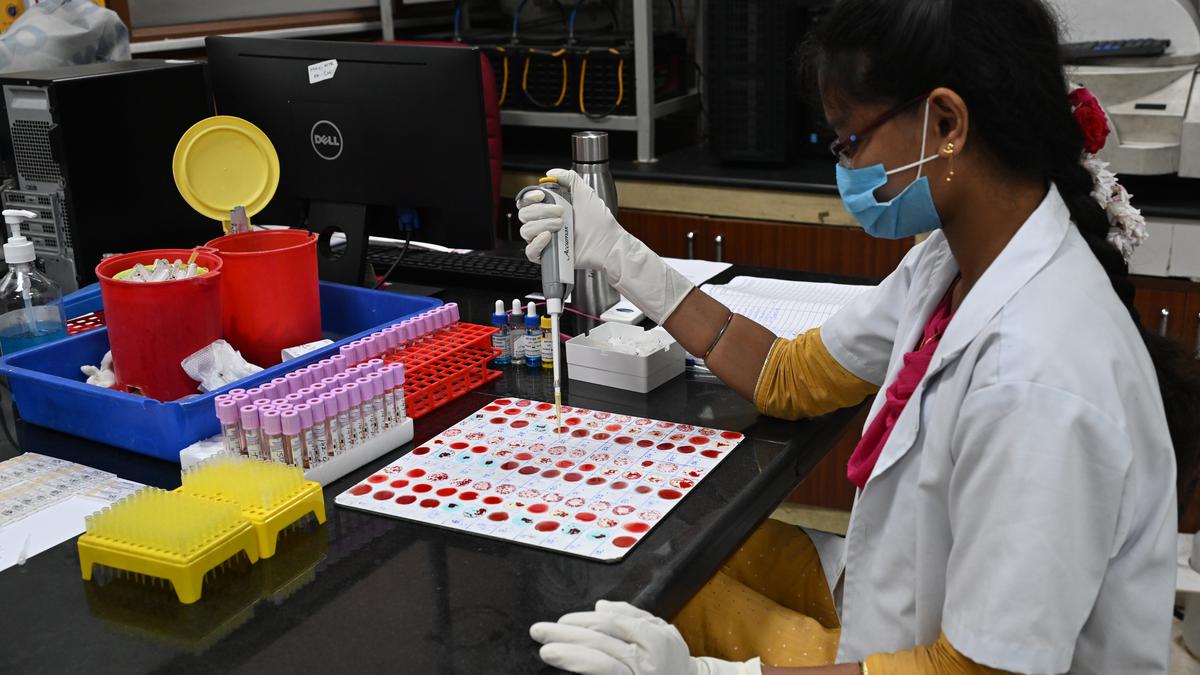Science
Chikungunya Cases Surge in Telangana Amid Discrepancies in Data

Telangana has experienced a significant increase in chikungunya cases during the first half of 2025, with the Union government reporting 1,588 cases from January to June. This figure represents a dramatic rise from 170 cases in the same period of the previous year. The figures were presented by Anupriya Patel, Minister of State for Health and Family Welfare, in a parliamentary session on July 25, 2025.
The State health department has disputed these numbers, labeling them inaccurate and inconsistent with their own records. In her written reply to the Lok Sabha, Patel indicated that several States and Union Territories had seen a marginal increase in seasonal vector-borne diseases, attributed to improved surveillance and reporting through the Integrated Health Information Platform (IHIP).
According to the Directorate of Public Health (DPH) in Telangana, the actual number of chikungunya cases recorded until June is approximately 240. Amar Singh Naik, Additional Director of DPH, emphasized that the situation has been effectively controlled and regular monitoring is ongoing. He stated, “The number presented in the Lok Sabha is wrong. We don’t know how that data was generated, but it is not consistent with our records.”
The Central government’s response in Parliament noted the proactive measures taken to mitigate seasonal outbreaks, particularly with the arrival of the monsoon season. These measures include intensified surveillance for early detection of vector-borne diseases, anti-larval operations in known mosquito breeding areas, and community awareness campaigns.
To support the states, including Telangana, the Central government has provided diagnostic kits, treatment materials, and budgetary assistance under the National Health Mission. This initiative aims to bolster the health systems as they prepare for potential outbreaks associated with changing weather patterns.
The discrepancy between the reported figures highlights the ongoing challenges in accurately tracking vector-borne diseases, which can significantly affect public health responses. The situation calls for enhanced coordination between state and central health authorities to ensure that accurate data is used to inform interventions and resource allocation.
-

 World4 months ago
World4 months agoSBI Announces QIP Floor Price at ₹811.05 Per Share
-

 Lifestyle4 months ago
Lifestyle4 months agoCept Unveils ₹3.1 Crore Urban Mobility Plan for Sustainable Growth
-

 Science4 months ago
Science4 months agoNew Blood Group Discovered in South Indian Woman at Rotary Centre
-

 World4 months ago
World4 months agoTorrential Rains Cause Flash Flooding in New York and New Jersey
-

 Sports4 months ago
Sports4 months agoBroad Advocates for Bowling Change Ahead of Final Test Against India
-

 Top Stories4 months ago
Top Stories4 months agoKonkani Cultural Organisation to Host Pearl Jubilee in Abu Dhabi
-

 Science4 months ago
Science4 months agoNothing Headphone 1 Review: A Bold Contender in Audio Design
-

 Top Stories4 months ago
Top Stories4 months agoAir India Crash Investigation Highlights Boeing Fuel Switch Concerns
-

 Sports4 months ago
Sports4 months agoCristian Totti Retires at 19: Pressure of Fame Takes Toll
-

 Business4 months ago
Business4 months agoIndian Stock Market Rebounds: Sensex and Nifty Rise After Four-Day Decline
-

 Politics4 months ago
Politics4 months agoAbandoned Doberman Finds New Home After Journey to Prague
-

 Top Stories4 months ago
Top Stories4 months agoPatna Bank Manager Abhishek Varun Found Dead in Well









